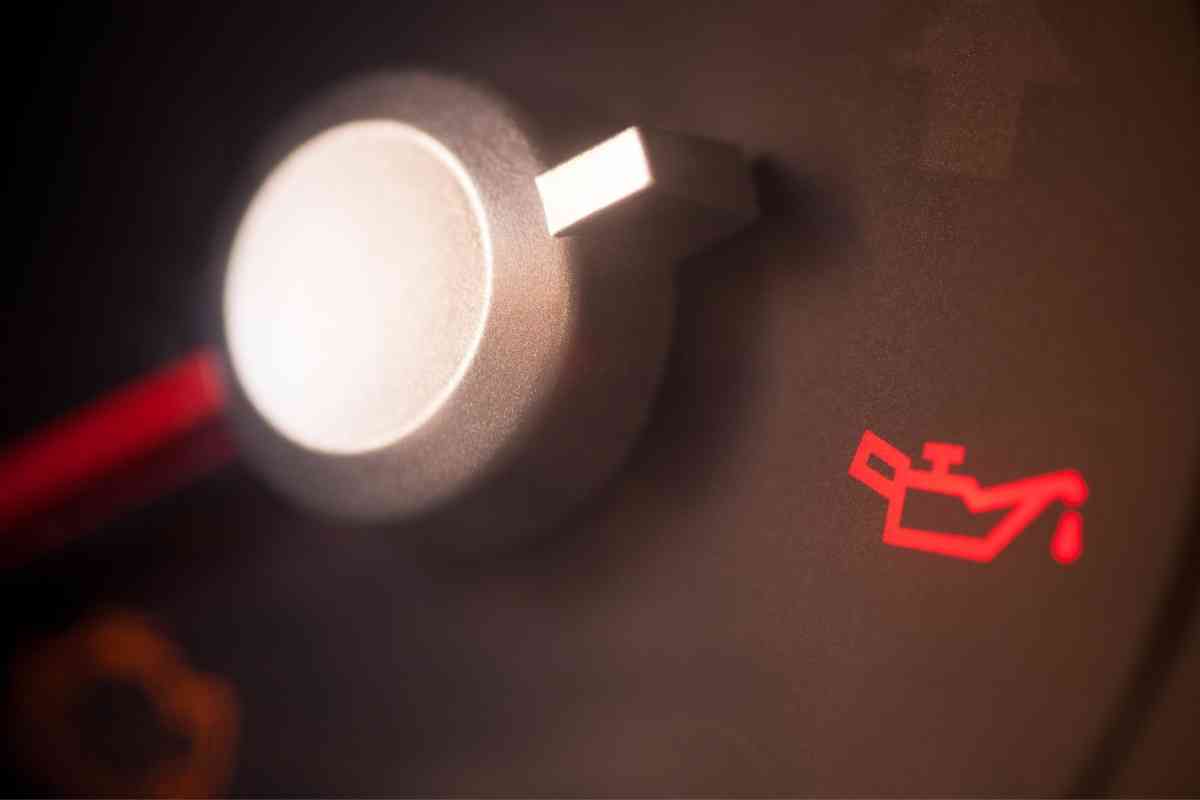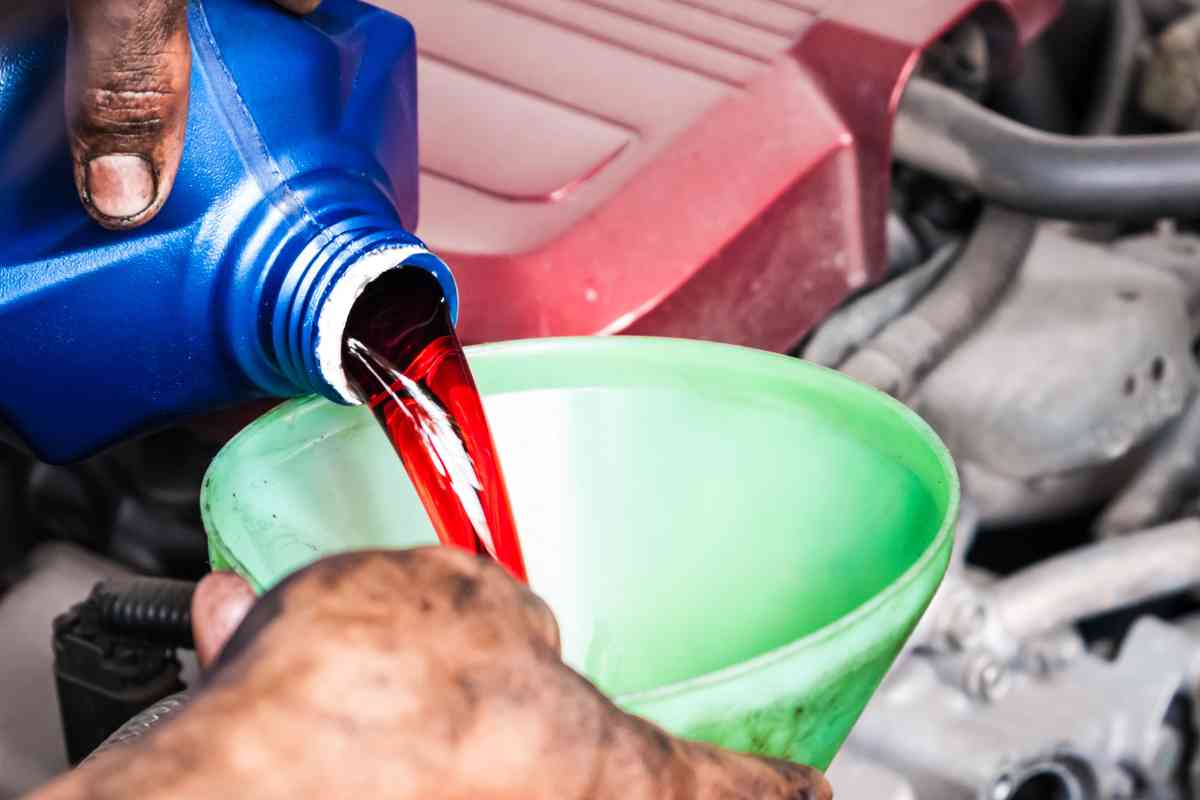When Your Jeep Says Hot Oil, What Does It Mean?
Whether you are looking for an off-road warrior or an SUV for your local commute, the Jeep lineup of vehicle models has something for everyone. But even with its hardy and highly durable construct, the Jeep is not immune from faults.

Since Jeep is usually designed for the harshest terrain, it is likely to hit some obstacle along the way that may cause a malfunction of the vehicle. Jeep comes equipped with built-in maintenance alert signals that will warn you of specific components in the vehicle. This could be in the form of sound beeps or light signal alerts, and sometimes both.
When this happens, it usually means that the issue has reached a critical stage and action should be taken immediately.
Have you ever noticed the hot oil alert on your dashboard display?
What Does It Mean When Your Jeep Says Hot Oil?
This is a transmission fluid warning that will turn on if there is excessive transmission fluid temperature, it is time to change your transmission oil, or if there is a faulty sensor or bad wiring.
Like any other vehicle, the Jeep requires regular maintenance to keep it working in perfect condition.
The Jeep needs a more regular routine check-up because of the nature of the off-road driving that it handles.
When this happens, the dash display will flash “Hot Oil” with a continuous beeping sound.
When this happens, you should quickly check under the hood.
The first thing to check is the oil level.
If the oil levels are okay and the warning is still flashing, then you will have to follow the cable to confirm there is no cut or short circuit that is affecting the sensors.
Jeeps are usually driven in complex terrains.
Obstacles on the road are likely to cause damage to the exposed parts of the undercarriage.
When this happens, you will need an expert to find the fault for you.
The hot oil signal should not be ignored.
Excessive Transmission Fluid Temperature
There are several reasons why your Jeep will say “Hot Oil” on the dash info center.
The sensor’s primary purpose is to convey the temperature of the transmission oil.
In this case, your transmission oil can become hot because of severe usage, for example, trailer towing.
This will also happen when you operate the vehicle in a high torque converter slip condition, like the four-wheel drive operation on snow or general off-road cruising.
When this happens, you should stop the engine and run it on idle for a while with the transmission at Neutral (N) until the message goes off.
This will allow the transmission fluid to get back to its average temperature.
Driving with the transmission temperature saying “HOT OIL” warning message can cause severe and costly damage to your Jeep’s transmission system and engine.
Also, if you continue driving when the “HOT OIL” message is still flashing, you risk causing the fluid to boil over and come in contact with the hot engine or exhaust component and cause more costly damage under the hood.
Always stop the vehicle immediately and let it idle while on Neutral gear, as discussed earlier.
In many cases, your Jeep will start warning you of hot oil when the temperatures exceed 115 degrees centigrade.
You can remedy this by adding an extra cooler specifically for your transmission fluid.
Alternatively, you can stop working on the high torque or heavy towing activity.
Ensure that the load you are towing is within the recommended maximum towing capacity of your vehicle.
When towing a heavy camper trailer that goes beyond the manufacturer’s specification, you are likely to experience the “HOT OIL” warning.
This will also occur when you take a steep climb, which demands extra torque from your Jeep.
It Is Time to Change Your Transmission Fluid
When the hot oil warning comes up, and your Jeep is yet to reach its routine service mileage, this can be a sign that there is a malfunction in the transmission system.
If the oil pressure is acceptable, and you have used OEM recommended filters, that will eliminate the chances that the replacement parts are of low quality.

If this persists, you should change the transmission oil.
This is the last resort after checking all the other transmission system components.
Inefficient cooling will sometimes cause the transmission oil to heat up.
When this happens, the cooling system should be checked for defects.
In case the issue of high transmission temperature persists, you will need an additional OEM transmission fluid cooler to assist.
This is only in extreme cases where the ambient temperature also affects the cooling system of your vehicle.
A Faulty Sensor or Bad Wiring
The other most likely reason behind the “Hot Oil” alert could be a faulty sensor or wrong wiring.
When the sensor wire that is supposed to relay the message is cut, the dashboard info center will display the message as an error.
This commonly happens when you use a pressure washer to wash the undercarriage or when an obstacle hits the exposed wire in the off-road terrain.
When this happens, you should follow the wire from the fuse box to confirm none of the cables is hanging or exposed.
When the cable case is injured in any way, it will expose the wires inside to an external environment or forces that may cut the wires.
If this persists, you need an expert to check your electrical system.
Since the transmission oil system is partly electrical and partly mechanical, it will require thorough troubleshooting of both the electrical and mechanical transmission components.
Check the Electronic Vehicle Information Center (EVIC) for any further information on the electrical fault.
If this persists, the entire system should be serviced, including a total oil change.
Frequently Asked Questions (FAQ)
What is the disadvantage of additional transmission coolers?
The disadvantage of using an extra transmission cooling system for your Jeep is that it takes a long time for the transmission to attain its optimal operating temperature, especially during winter seasons.
When you operate your Jeep’s transmission fluid at too high or too low temperatures, it will lead to increased wear and tear over time.
Always use a cooler that has a thermostat that will regulate the temperatures.
Why does the Jeep Wrangler burn oil?
When this happens, it means your Jeep Wrangler leaks somewhere in the engine, which is the common cause for this.
Another reason can be worn-out piston rings.
Your piston rings will wear and tear rapidly when your oil is leaking.
How long should I wait before I change the oil on my Jeep Wrangler?
According to the Jeep Wrangler’s Owner’s Manual, it is recommended that you change your oil and filter when your oil change indicator system prompts you to do so.
But if this doesn’t happen, you should ensure that you at least change your oil once every 12 months or 10,000 miles.
I have changed my oil, but the light is still on. Why is this happening?
In this case, your oil pump could be defective, causing the light to stay on.
Alternatively, there is a possibility that there is not enough oil flowing through the various components.
If this is the case, frequent oil changes will assist in preventing this from recurring.
However, due to normal wear and tear, some parts will need replacement.
Also, sometimes your oil light will remain on because of a reduction of oil pressure.
This will cause the light to illuminate.
The engine cannot efficiently lubricate when there is not enough oil pressure.
This may occur when you use inappropriate oil and may even lead to a full-blow engine seizure if left unresolved.
Jeep Hot Oil Light
When your vehicle gives you a “HOT OIL” warning on the dash display center, you should stop the car and leave it on idle with the transmission in a Neutral position.
This will help prevent any further damage to the transmission and the engine.
There are several reasons why this will happen on your Jeep, but the most common is the increased temperature of the transmission fluid due to severe use of the towing capacity of your Jeep.
While the vehicle is idle, you should try and locate the source of the problem.
Check the sensor to confirm that it hasn’t been raptured by some obstacle on the off-road terrain that you were driving.
Also, when washing the undercarriage of your Jeep with a pressure washer, care should be taken not to damage the exposed cables underneath the vehicle.
A defective transmission fluid sensor will cause the warning to flash on your dash.
Also, watch out for the maximum towing capacity of your Jeep or any other vehicle with the towing capability.
When a car is subjected to high torque, or a torque value that surpasses the one recommended by the manufacturer, the transmission oil is likely to heat up, causing damage to the system.
